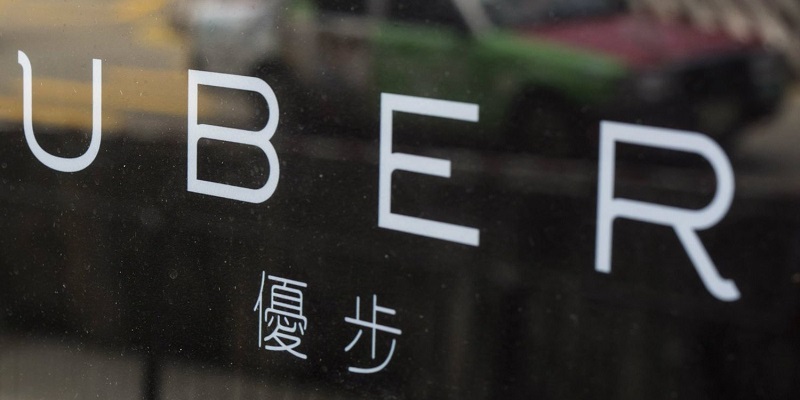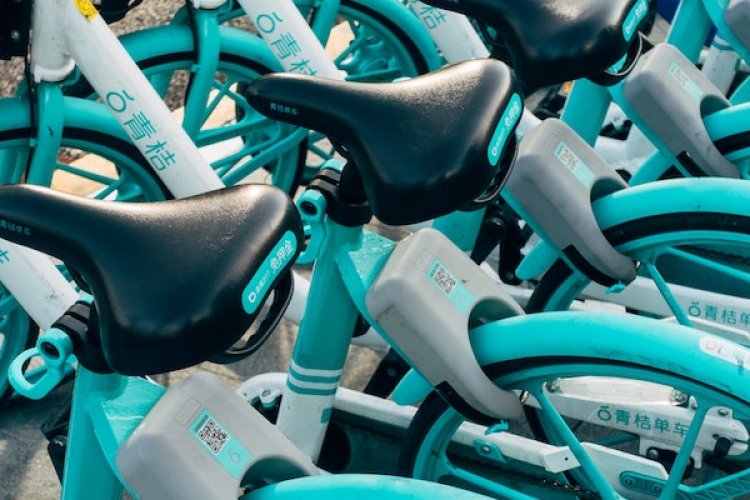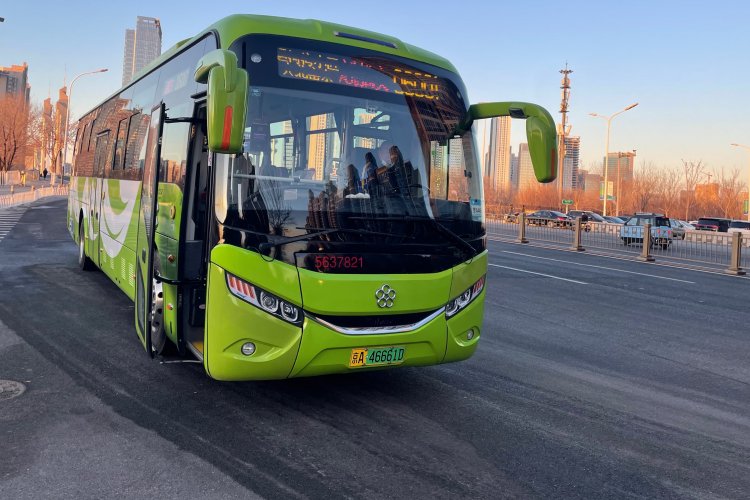Uber to Automatically Block Old App Nov 26
This is a repost of a guest blog we originally ran on November 12 courtesy of Shanghai-based blogger, radio host and Fudan University teacher Ryan King, who has comprehensively documented what we expats in China are to do now that Uber has removed its handy English interface.
Uber have now announced, via a bombardment of messages on their app, that the old version of Uber will be automatically disabled come this Saturday, November 26. Unfortunately, if you can't read Chinese then you wouldn't have known:

The message above roughly translates to:
- In 3 days (on Nov 26) your Uber app will be automatically disabled.
- To avoid unnecessary problems please download the new version of Uber as soon as possible.
- 99 percent of Uber users in Beijing are already using the new version of Uber.
- The majority of drivers are also using the new version.
Read why these changes are occurring in the post below.
* * *
On November 3, 2016, Uber went through one of the biggest changes in its short history when it formally decoupled its service in China from from the rest of its worldwide operations. This has created much speculation as to motives, with a number of news outlets titling their articles to suggest that this was a deliberate attempt to 'lock out' foreigners from using the service in China. In this post, I will ignore the rhetoric, and just focus on answering a few of the questions that my friends and business associates inside and outside of China have been asking me.
If you don't use Uber in China, you might want to skip over the questions in the middle and get to the analysis at the end.
Basically, what happened?
App: Uber has effectively divided its app into two separate apps: one for use in China, and one for the rest of the world. Uber China does not work anywhere outside of China (including in Hong Kong from what I can see), while Uber International can not be used within China (excluding Hong Kong). Attempting to use the Uber International app in China will result in a message informing you that Uber cannot connect to the network (I assume the same will happen vice-versa, but have not been able to test yet).
Language: Uber China is now entirely in Chinese and has no English functions like it did previously. It is also no longer possible to type your destination in English, unless the location is stored in Uber's search suggestions under an English name. For all intents and purposes, you will now need to know (at least) your destination in the original Chinese.
Payment: There are three payment methods available in the new Uber China app - mobile payment services AliPay and Baidu Wallet, and cards issued by UnionPay. While many articles have reported that 'foreign credit cards cannot be used', the change is really about the card provider. The lack of any other options in the payment section suggests that even Visa and MasterCard credit cards issued in China cannot be used. It remains unknown whether UnionPay cards issued outside of the Chinese Mainland can be used or not.
I'm a non-Chinese citizen living in China - how does this affect me?
App: Upon entering the Uber app, you will be prompted to update. If you usually use a non-Chinese app store, you will be taken there and made to update Uber. The updated version will be Uber International and will be unusable in China. To get the Uber China app, you will need to go to a Chinese app store to download. For iOS users, this will mean setting up a new Apple ID for China, since Apple IDs are bound to the app store in the country where you first registered. For Android users, a visit to any of the local China stores should suffice: 360 or Wandoujia would be recommended. The Uber China app is currently not available in non-Chinese app stores.
Language: If you don't already read and type Chinese, you might want to start! Alternatives in the meantime would be getting friends to send the address in Chinese, or searching for the location in an app such as Baidu Maps, Dazhong Dianping, or BonApp, and then copying and pasting what you find.
Payment: You will no longer be able to use your Visa or MasterCard if you were before, but your UnionPay should be fine as long as it is authorized for electronic payments. If you haven't already registered an AliPay account, this is a great excuse to go get one - it's much easier now than it used to be. Baidu Wallet may be the most useless of the three options, but is also super easy to register for, providing you can read Chinese (no English version at present).
I'm a non-Chinese citizen who comes to China for business/pleasure - how does this affect me?
App: The advice for using the app is the same as above. There is one caveat to be aware of if you are visiting from overseas: you will need a local Chinese mobile number in order to use the Uber China app. If you do not have one, you are effectively cut off from being able to use Uber in China.
Language: Advice is the same as above.
Payment: Same as above, except to add that setting up AliPay is extremely difficult for non-resident foreign citizens and this avenue is probably not available to you (note that AliPay International cannot be used with Uber China). A UnionPay card issued outside of China may or may not work - please let me know in the comments if you find that it can.
I'm a Chinese citizen - how does this affect me?
App: Upon entering the Uber app, you will be prompted to update. Assuming that you use a China-based app store, you will be prompted to update, and your Uber app will be replaced with the new Uber China app. This will be fine for usage in China. Should you travel overseas for work or pleasure, you will need to download the Uber International app if you want to use Uber while you are there. For iOS users, this requires setting up a new Apple ID in an international app store, since Apple IDs are bound to the store where you first registered. For Android users, visiting the Google Play store when outside of China should be your easiest solution.
Language: The new Uber China app only supports Chinese language input. You will have to find the Chinese addresses of places you only know by their English names as they will likely not show up in search results in the new app.
Payment: You will be able to use your AliPay, Baidu Wallet, or any of your UnionPay cards with ease. However, it appears that Visa and MasterCard credit cards, even if issued within China, are no longer accepted.
I no longer have a way to use Uber in China - what can I do?
If you have read the appropriate guide above and believe you no longer have a way to use Uber in China, then I'm afraid that I have little to console you with. Uber was the only ride-sharing service in China that was available to use in English and had support for overseas payment methods. Therefore, Uber's rivals, such as their own parent company Didi Chuxing and Yidao Yongche, will be equally inaccessible. For the moment, you may have to go Uber-less.
As for getting around on four wheels while in China, it may be a matter of back to basics. Hotels, office buildings, and many shopping malls will be happy to book taxis on your behalf. Local ride-sharing app Didi separates the booking and payment procedures, so friends and colleagues will often be willing to book Didi for you, and allow you to pay for yourself when arriving at your destination. While these options are incredibly basic, I'm afraid they are the best available to you following the update.
I now have two Uber apps on my phone, just like I have two Starbucks apps. In both cases one is for China and one of for everywhere else.
Why has Uber separated the apps?
The official statements coming from Uber and Didi have the usual message of 'optimizing the performance of our service for all our customers', so no clues there. The most likely catalyst was the takeover of Uber's operations in China by Didi back in August this year. It could be that Uber is unwilling to share their network with its China subsidy now that they are only minority owners. Alternatively it is possible that new parent Didi was behind this, trying to localize their service and slowly break it away from Uber proper. Perhaps we will never know.
Why has the new app removed so much?
Despite the cries from numerous reports that foreigners have been 'cut out' from the new Uber service, it seems unlikely to me that this would have been the reason behind the removal of so many features. While foreigners in China overwhelmingly use Uber over other services, Uber's customer base is still overwhelmingly Chinese. Like many apps in China, the need to provide support in the English language or for foreign payment methods is minimal and often expensive to implement for such a tiny customer base.
Read the rest of Ryan King's analysis on his blog at ryankingcafe.com
Image: ryankingcafe.com
Related stories :
Comments
New comments are displayed first.Comments
![]() PatrickLi
Submitted by Guest on Wed, 11/30/2016 - 08:45 Permalink
PatrickLi
Submitted by Guest on Wed, 11/30/2016 - 08:45 Permalink
Re: Uber to Automatically Block Old App This Saturday, Nov 26
I'm still confused about the merger between Uber and Didi --- this goes to the completely opposite direction from the traidtional economic notion of fair play and antitrust.
Does China even have antitrust/monopoly laws?
Yep, it's just selective application. If I remember correctly, the last time for an anti-trust case to receive public attention in China was Pepsi v. Huiyuan Juice (Pepsi tried to buy Huiyuan) where the people's court ruled against the merger on ground of antitrust. Funny thing is Pepsi didn't even sell juice products in China. They sold a product called "Cool" (酷儿) which is similar to Snaples --- bottled, flavored juice made from concentrate, far from the traditional notion of orance/apple/peach juice sold by Huiyuan.
![]() schreursm
Submitted by Guest on Mon, 11/28/2016 - 17:29 Permalink
schreursm
Submitted by Guest on Mon, 11/28/2016 - 17:29 Permalink
Re: Uber to Automatically Block Old App This Saturday, Nov 26
I'm still confused about the merger between Uber and Didi --- this goes to the completely opposite direction from the traidtional economic notion of fair play and antitrust.
Does China even have antitrust/monopoly laws?
China did adopt a new anti-monopoly law almost a decade ago which is on par with Western countries' laws. Implementation, however...
![]() admin
Submitted by Guest on Mon, 11/28/2016 - 13:27 Permalink
admin
Submitted by Guest on Mon, 11/28/2016 - 13:27 Permalink
Re: Uber to Automatically Block Old App This Saturday, Nov 26
I'm still confused about the merger between Uber and Didi --- this goes to the completely opposite direction from the traidtional economic notion of fair play and antitrust.
Does China even have antitrust/monopoly laws?
![]() schreursm
Submitted by Guest on Mon, 11/28/2016 - 10:35 Permalink
schreursm
Submitted by Guest on Mon, 11/28/2016 - 10:35 Permalink
Re: Uber to Automatically Block Old App This Saturday, Nov 26
Hi, I Am expat in Shanghai - When trying to use the new Uber version and entering my Unionpay informations, the app is prompting for a ID Znumber. As expats we don't have a Chinese ID number, how do you solve this ?
We haven't found a way so far, unfortunately. But we will update here when/if the app becomes available for foreigners again.
![]() PatrickLi
Submitted by Guest on Mon, 11/28/2016 - 08:46 Permalink
PatrickLi
Submitted by Guest on Mon, 11/28/2016 - 08:46 Permalink
Re: Uber to Automatically Block Old App This Saturday, Nov 26
I'm still confused about the merger between Uber and Didi --- this goes to the completely opposite direction from the traidtional economic notion of fair play and antitrust.
Before the merger, Uber and Didi already took probably at least 80% of the total market share, and now it's all Didi's. A couple taxi hailing apps died before Uber in similar ways, such as Yihao Zhuanche. Isn't it a common sense to the legislators in China that it is good to have options?
Validate your mobile phone number to post comments.







